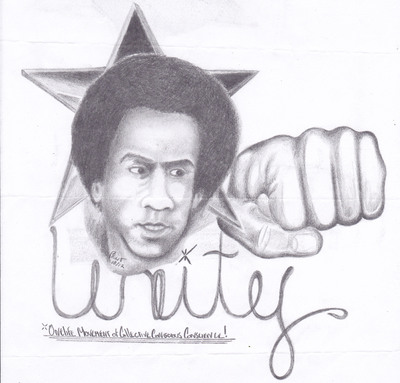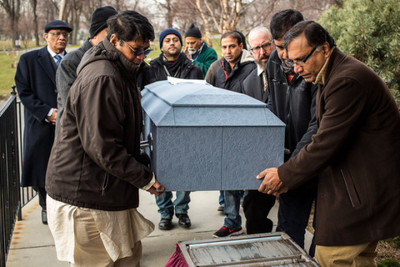October 2012: A captive, B (an old white man), a known writ writer, was
placed in G1112 cell with a younger Black captive, R. Lt. Harrold and
Sgt Green told R that B is a racist, causing R to beat up B. R was
rewarded with the head orderly job in G-Dorm, while B is to never get
off close management due to receiving constant fabricated disciplinary
reports against him because he is a writ writer. The beating occurred
between October 13th and October 31st in G1112 cell.
Early November 2012: another writ writer was beaten and cut with a razor
blade by another prisoner placed in G1106 cell working for Sgt Patton.
This is not his first time he was set up by the police. Currently he is
on CM-1 slapped with numerous fabricated Disciplinary Reports (DRs) and
won’t get off CM until he is broken.
Early November 2012, prisoner W, a mentally ill prisoner in G1103 cell,
after continuous daily harassment, was gassed by Sgt Green and his crew,
for no other reason than implementing mass terror and intimidation. He
was made an example of via procedural lynching for all to see and fear.
December 3, 2012: CO Maguire and another CO beat up a prisoner in G1209
cell, while the prisoner was handcuffed behind his back. After being
beaten the prisoner was slapped with a fabricated assault on a CO DR.
How do you assault a CO with your hands cuffed behind your back?
December 5, 2012: two prisoners in G1203 cell were gassed by Sgt Harvey,
all in retaliation intended against one of the prisoners due to some
incident months prior.
December 9, 2012, A prisoner was taken from G1103 cell in handcuffs,
hands behind his back, and jumped on in the hallway by Sgt Green and his
crew. Sgt Green had planned and called in the incident moments prior to
its actual occurrence.
December 17, 2012: A prisoner in G1210 cell was gassed for simply
declaring a psychological emergency. All captives declaring a
psychological emergency are gassed and slapped with fabricated DRs to
justify and cover up the gassing.
December 30-31st, 2012: Two prisoners in F1213 and two other captives in
F1214 cell were placed on strip (72 hour property restriction - no
mattress, no bedding, no clothes - left in only boxer shorts) the
temperature outside was in the 20s and the heaters were off. They were
placed on strip for fabricated reasons by Sgt Fisher.
December 31st, 2012: two prisoners in F1110 cell were gassed and slapped
with fabricated DRs because they refused to speak to Sgt Kelly when he
approached their cell in his two faced (smile in your face, stab you in
the back) manner.
Jan 5, 2012: Sgt Kelly placed two captives beefing with each other on
strip together in F2103 cell so they could fight, they’re fighting as I
write.
These prison guard brutalities are only a few of the many that occur
here on Close Management at Suwanee Correctional Institution here in
Florida. Many of the identities of the victims are unknown to me, but
can be obtained by simply viewing camera/document evidence which can be
obtained by anyone via request of public information pursuant to the
Freedom of Information Act. Do not just take my word at face value,
please request the evidence and speak with the victims mentioned for a
more detailed truth of what transpired. (Some may fear staff retaliation
and refrain from speaking). We beg that you help by simply calling in or
emailing concerning these brutalities.
Just recently in October 2012, Taylor and Union CI underwent a major
purge by higher authorities during which approximately 60 officers of
all ranks were escorted off institution grounds due to their brutal and
tyrannical practice. Suwanee CI needs to experience the same purge of
its tyrants like Lt Martin (aka white widow), Lt Harrod, Sgt Harvery,
Sgt Patton, Sgt Silver, Sgt Green, Sgt Kelly, Sgt Fisher, CO Barton, CO
Maguire, CO Lynblade, CO Diaz, CO Landrum, CO Lane, CO Murman, CO Pope -
who brags to captives how he pays captives extra lunch trays to beat up
other captives - and all their superiors - captains, majors, colonels,
classification officers and warden and secretary of FDOC - who all
encourage, condone and even orchestrate these many use of excessive
force brutalities and procedural lynchings and fabrication coverup
reports.
Many captives are falsely accused of gunning (masturbating) by female
COs just so captives can be jumped on, gassed or placed on strip by
these male COs. These tyrants and sadists will not stop on their own.
MIM(Prisons) responds: The list of people this writer suggests
need to be purged from Suwanee demonstrates our point that it is not
possible to reform the Amerikan criminal injustice system. This is not a
case of just a few bad apples, but rather a system of oppression and
violence, in which employees must participate to receive a paycheck. We
must expose the brutality, and fight the individual cases to create some
livable space for our comrades, but we will only end the violence by
dismantling the criminal injustice system entirely.






 Alabama
Alabama
 Alaska
Alaska
 Arizona
Arizona
 Arkansas
Arkansas
 Army Post
Army Post
 California
California
 Colorado
Colorado
 Connecticut
Connecticut
 Delaware
Delaware
 District of Columbia
District of Columbia
 Federal
Federal
 Florida
Florida
 Georgia
Georgia
 Guam
Guam
 Hawaii
Hawaii
 Idaho
Idaho
 Illinois
Illinois
 Indiana
Indiana
 Iowa
Iowa
 Kansas
Kansas
 Kentucky
Kentucky
 Louisiana
Louisiana
 Maine
Maine
 Maryland
Maryland
 Massachusetts
Massachusetts
 Michigan
Michigan
 Minnesota
Minnesota
 Mississippi
Mississippi
 Missouri
Missouri
 Montana
Montana
 Nebraska
Nebraska
 Nevada
Nevada
 New Hampshire
New Hampshire
 New Jersey
New Jersey
 New Mexico
New Mexico
 New York
New York
 North Carolina
North Carolina
 North Dakota
North Dakota
 Ohio
Ohio
 Oklahoma
Oklahoma
 Oregon
Oregon
 Pennsylvania
Pennsylvania
 Puerto Rico
Puerto Rico
 Rhode Island
Rhode Island
 South Carolina
South Carolina
 South Dakota
South Dakota
 Tennessee
Tennessee
 Texas
Texas
 Utah
Utah
 Vermont
Vermont
 Virginia
Virginia
 Washington
Washington
 West Virginia
West Virginia
 Wisconsin
Wisconsin
 Wyoming
Wyoming



